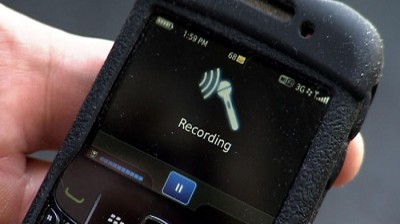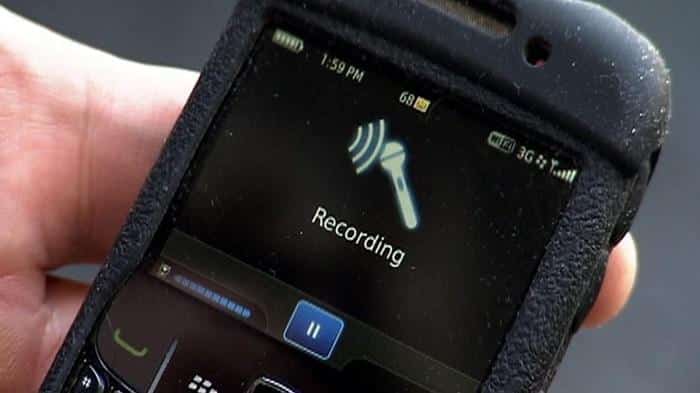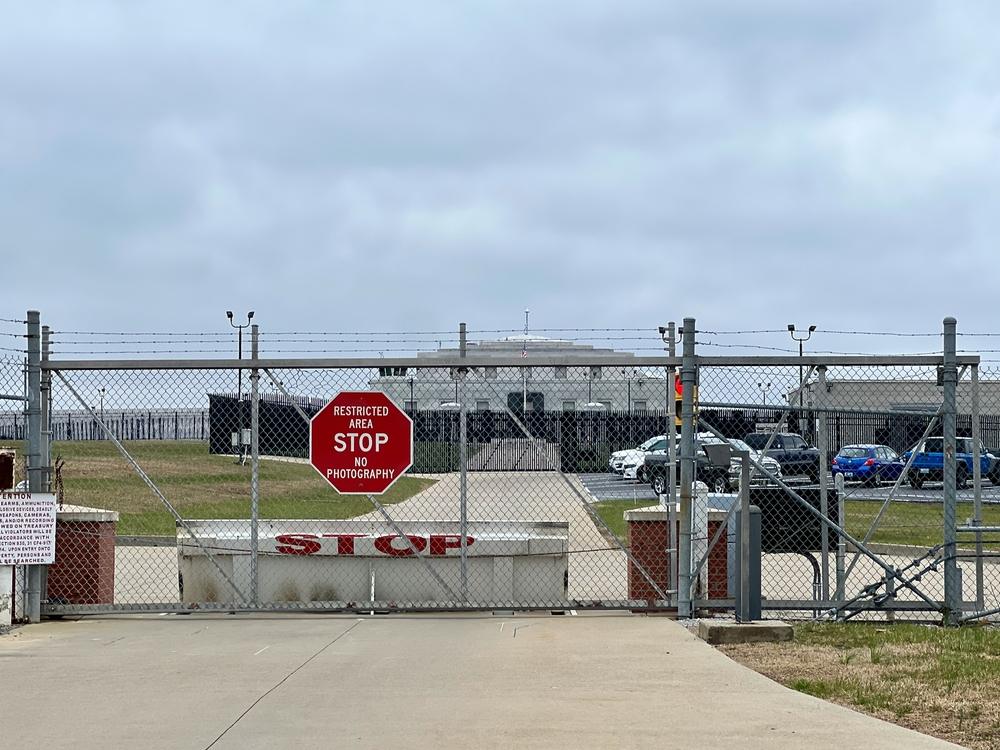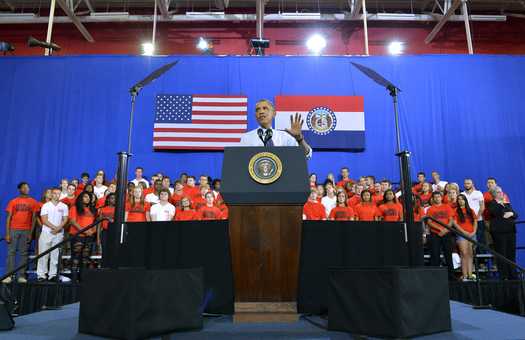
Simply turning on your smartphone during an arrest can lead to a charge of wiretapping.
Karen Dziewit of Chicopee, Massachusetts, found that out the hard when cops discovered that the audio recording feature on her phone was active during an arrest.
A charge of unlawful wiretapping was added to complaints against Dziewit after police found, in her purse, a phone with the recorder feature turned on while she was being booked. Dziewit had been arrested for disorderly conduct and driving with an open container of alcohol.
Springfield, Massachusetts, police contend that Dziewit violated a state law that makes it illegal to make an audio recording of a person without his or her consent. The Springfield Republican newspaper quoted a police report that said Dziewit may have told officers she was recording them.
“I’ve been recording this thing the whole time, my phone is in my purse, see you in court,” Dziewit allegedly said.
Smartphones vs. Police
The arrest of persons taking pictures of or recording police in action is a growing problem around the country. People in several states have been arrested or had phones confiscated by officers.
Discover The Only Way Back To True Freedom And Liberty In America…
Michael S. Davis of Lima, Ohio, was arrested after recording a drug arrest on a public street in April. Officers charged Davis with obstructing an officer even though he didn’t actually interfere with the arrest. Police contended that the video on his phone was evidence which gave them a right to seize it. Davis was only an observer of the arrest, and he was tased when, police say, he resisted arrest.
“The only reason why we [record] the police is to keep them in line and prevent them from going overboard,” Davis said of the video. He said he was planning to post the video on a website called Cop Block.
Davis’ experience is similar to that of a number of people who were arrested for taking pictures and video of police at a rap concert in Memphis in October. News reports indicate that cops were afraid the videos would end up on YouTube.
Law Allows Recording Police

Police may have violated Davis’ rights by taking his phone, Mike Brickner of the American Civil Liberties Union (ACLU) told The Lima News.
“He has a right to film as long as he’s not interfering with the officers,” Major Chip Protsman of the Lima Police said. Protsman said the phone would be returned.
Protsman’s admission is in line with the consensus of the ACLU and other groups that believe the First Amendment gives US citizens the right to photograph or record anything that goes on in public or plain sight. That includes arrests and other police activities that take place in the streets or public places such as parks.
“When in public spaces where you are lawfully present you have the right to photograph anything that is in plain view” a special ACLU web page says.
The accepted doctrine is that officers can only tell you to stop taking pictures or recording if you are doing something else illegal such as interfering with an arrest. They cannot simply order you to stop recording.
Sign up for Off The Grid News’ weekly email and stay informed about the issues important to you












